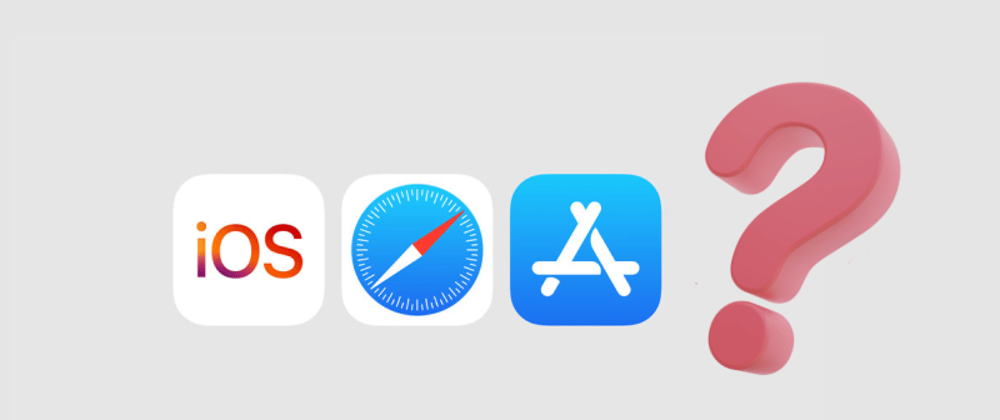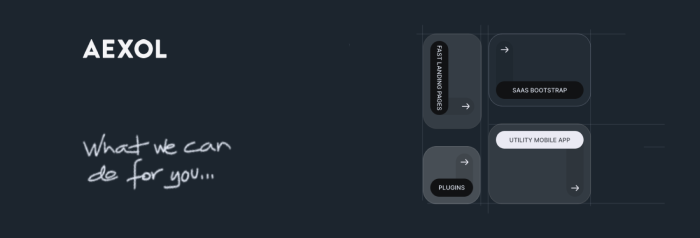Yesterday (25 Jan 2024) Apple announced some major changes to iOS, Safari, and the App Store operating model that would impact developers' apps in the European Union. The motivation for the changes is to comply with the Digital Markets Act (DMA) that came into force in Nov 2022. Let's have a look at the most interesting ones, or if you want to see the full list of changes go to Apple's official announcement.
What's new for iOS
For iOS, Safari and App Store to become DMA compliant Apple has been forced to significantly loosen many of its previous restrictive operating rules which will result in:
New framework and APIs for browser engines — which will allow developers to use browser engines, other than the default iOS WebKit, for browser apps and apps with in-app browsing, which is a huge impact on developers, as it should give them some more options when dealing with WebView.
Interoperability request form — through which developers can apply to unlock additional iPhone, iOS hardware and software functionalities which should lead to some cool new products see daylight
A lot of you might say:
"Hey, what about the alternative app marketplace deregulations?"
so it looks like we should indeed get some new APIs & tools for publishing, downloading & even updating apps from alternative marketplaces, but this comes with even more safeguards (regulations?) in the form of:
- Notarization for iOS apps
- App installation sheets
- Authorization for marketplace developers
- Additional malware protections
which is hardly surprising as this could pose a risk for iPhone end users. I honestly believe that the majority of users and app download traffic will remain in the App Store anyway. It's a tidy, familiar & trustworthy environment, so nothing should change until a high-trust alternative emerges.
What's new for the App Store
Changes to the App Store terms cause, to put it mildly, mixed feelings. So we're getting a tool which lets us estimate fees, better understand metrics associated with Apple's new business terms for apps in the EU (which will be covered in a minute) & a bunch of new really nice deregulations like the ability to:
- use 3rd party payment service providers - we're finally getting a way to process payments for digital goods and services directly from our iOS app (no additional fee to Apple),
- process payments via link-out - users can finally complete a transaction for digital goods and services on developer's external website (no additional fee to Apple),
and there is one but. This leads us to...
New Business Terms for Apps in the EU
Let's start with the fact that we can choose to accept these new business terms or stay on Apple's existing terms, but of course, the previously mentioned deregulations are only included in the new business terms.
Now let's see what's inside. It starts nicely with two eye-catchers in the form of:
- Reduced commission — iOS apps on the App Store will pay a reduced commission of either 10 percent (for the vast majority of developers, and subscriptions following their first year) or 17 percent on transactions for digital goods and services.
- Payment processing fee — iOS apps on the App Store can use the App Store's payment processing for an additional 3 percent fee. Developers can use a payment service provider within their app or link users to their website to process payments for no additional fee to Apple.
but then we're getting hit with:
- Core Technology Fee — iOS apps distributed from the App Store and/or an alternative app marketplace will pay €0.50 for each first annual install per year over a 1 million threshold,
since we're getting a cool new tool to "estimate fees, better understand metrics associated with Apple" let's do the math. As it was put nicely by Nikita Bier on his Twitter (@nikitabier) an app that would work & sell digital goods under new terms that generate 10 000 000 installs per year and is forecast to reach 10 000 000$ in sales can expect to pay a whooping 500 000$ in monthly fees. OK, the yearly APRU of 1$ is a bit higher (or a lot higher?) than the sector average, but as you can see in the breakdown below most of the fee is coming from the so-called "Technology Fee" which is tied to your install volume.
Conclusion
Considering all the above are we really getting a batch of deregulations or just DMA-compliant illusion of an alternative solution which in comparison with the current one comes out so poorly that few will want to use it? Apple boldly estimates that the new business terms would reduce or maintain the current level of fees paid to Apple for 99% of developers and that less than 1% would need to pay a Core Technology Fee on their EU apps. Let's wait and see.
--
About Aexol
Need help with software development? At Aexol, we develop mobile and web applications helping our clients grow. We are TypeScript and GraphQL focued company.








Top comments (0)